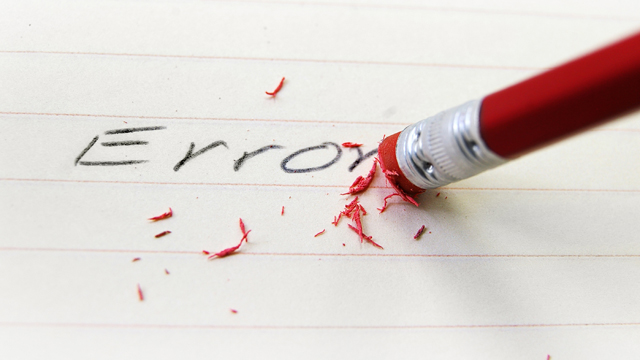
When we are born we may feel that we are clean slates, unwritten books, without a past to taint the future, wide open and ready to grow. However, according to Kabbalah, while we are born with endless potential to do great things in this lifetime, our slates are not exactly clean.
According to kabbalists, our current life is influenced by the lives we’ve lived previously. We are born with a tikun, or issues we are meant to repair in this life. Tikun is the Aramaic word for “correction.” Our tikun shows us how our past influences our present or more specifically, how the choices we’ve made determine which choices we should make in the future. Our tikun could be related to money, health, or relationships (romantic, platonic, or familial). Meaning, in any particular area of our lives we may need to correct behavior that was reactive or selfish in the past.
Understanding our personal tikun helps us to:
- Pinpoint weaknesses that lead us off course
- Recognize unresolved issues from our past
- Overcome obstacles that may inhibit our growth and ability to connect with the Light
- Let go of our fears
- Fulfill our highest potential
How do you identify your personal tikun? It’s really quite simple. Whatever causes you pain or discomfort is your tikun.
Have you ever felt that you were coming up against the same wall repeatedly? Have you ever felt that the universe was conspiring against you, that you couldn’t seem to get a break? When we come face to face with the same problems over and over again, that’s the Creator showing you that you need to work on some aspect of your behavior. That’s your tikun. Unless you learn the lesson, you are bound to repeat it.
Your tikun is like a navigation device in your car. When you make a wrong turn, your tikun reroutes to keep you on course. That road is taking you straight to the issue that you need to work on. Without it, we would get lost and may never fully deal with the issues we are meant to correct. Rav Berg explains, “Our tikun shows us the way, shows us the work we need to do on ourselves.” Until we work through our tikun, we are never fully living, never fully meeting our highest potential for greatness.
The biblical chapter Vayechi tells the story of Jacob's later years, which were much happier than earlier in life. In his younger years he dealt with many troubles—he fled from a brother who wanted to kill him, he was tricked into marrying the wrong woman and had to labor for 14 years before he could finally marry his beloved, then his children sold his favorite son into slavery. “For a hundred and thirty years, Jacob's life was marked by sadness,” says Michael Berg. “But once he moved to Egypt, once he had completed his correction, Jacob could let go of the heaviness that he carried for so much of his life. Now he could truly live.”
We each have roadblocks that we are not meant to circumvent. In order to correct our tikun, it is important to look at our behavior and tackle that roadblock head-on. It’s easy to displace responsibility and blame others or claim innocence. The hard work is acknowledging the hand we play in our own happiness and fulfillment.
For example, perhaps you find it hard make decisions. You feel that by taking a side you might hurt someone. Rather than make a choice you try to please all parties involved and in the past, ended up suffering the consequences. In order to correct this, you may need to build self-confidence so you can become proactive and meet conflict with your truth in mind.
Or it’s possible that you experienced injustice in the past and lost something very dear to you. As a result, it’s difficult for you to trust others and you may feel the need to cling to your possessions and relationships when you feel threatened, whether the threat is real or not. Correcting this tikun will involve letting go of fear and anger in order to trust again and see the best in others.
These are just two examples of the kinds of corrections that some tackle in order to fulfill their true purpose. “Each of us comes into this life with a tikun, a correction we must take on,” says Michael Berg. “Avoiding that work can lead to depression, and even when we engage in it, our doubts and uncertainties can contribute to our pain. But once we recognize what we are here to correct and succeed at the hard work of clearing away our tikun, those thorny thickets give way to lush meadows, and sorrow gives way to exuberance and joy, just as it did for Jacob.”
The sooner we do the work and correct our tikuns, the sooner we will be able to truly live. The road to happiness and fulfillment may not be smooth. Know that your work lies where you feel pain and discomfort. This is your tikun; this is what you are meant to correct in this life.
